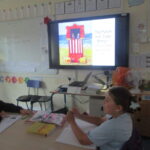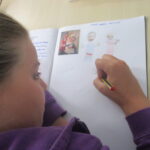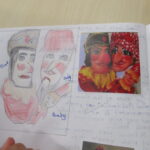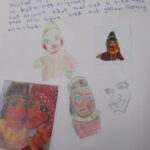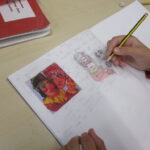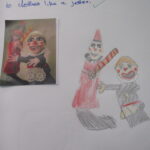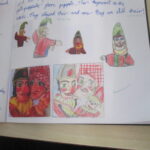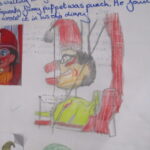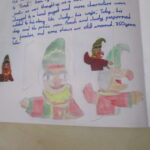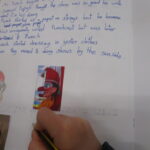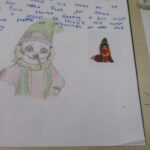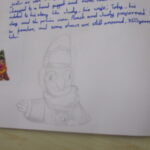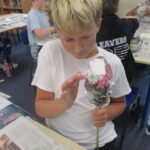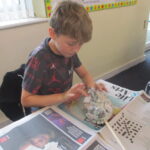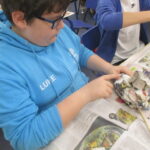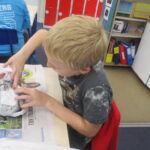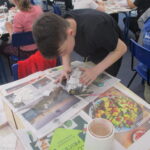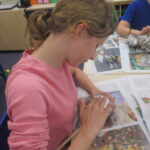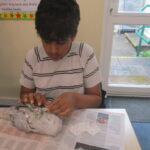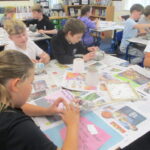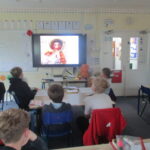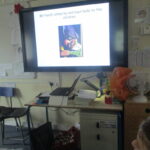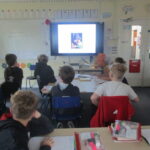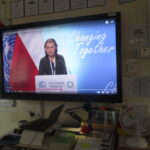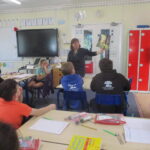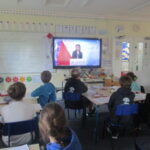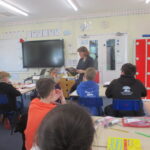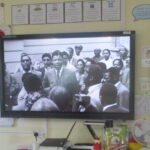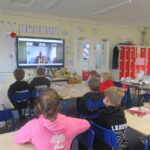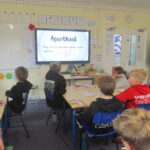Welcome back after the half term break!
What a fantastic week we’ve had in Year 6! It’s been filled with history, creativity, environmental action, and powerful conversations about justice and equality. As always, our learning is not only about the past and present—but about learning how we can shape a better future. Here’s what we’ve been up to:
During our continued study of Victorian Britain, this week we explored the weird and wonderful world of Punch and Judy. These famous seaside characters have a surprising history that begins all the way back in 17th century Italy, where a mischievous puppet named Pulcinella first took to the stage.
Through our research, we discovered how Victorian seaside holidays became more popular thanks to the development of railways—and Punch and Judy (seaside showbiz partners) were a key part of the entertainment! This tied in with our Art and DT learning, where we began designing and sculpting our own puppets, using newspaper, Plaster of Paris, and a whole lot of imagination! We exaggerated facial features, just like the originals, and had plenty of giggles along the way. Some of the noses were big enough to need planning permission! This learning supports Article 31—every child has the right to relax, play, and take part in cultural and artistic activities. Our puppet-making allowed us to express ouselves creatively while learning about cultural traditions of the past.
Our understanding of the Industrial Revolution has deepened, particularly how the expansion of the railway system revolutionised travel. We explored how leisure became more accessible, especially to working families who could now visit the seaside for the first time. This historical context made our Punch and Judy research even more meaningful! This links with Article 28, which recognises every child’s right to an education, including learning about the world’s history and cultures.
This week, English lessons took a real-world turn as we participated in Eco-Schools Week. We researched climate change and the global waste crisis, and discussed how young people can influence decision-makers. Inspired by Greta Thunberg, we wrote formal letters to Mr. Chris Hinchliff MP, asking what action our government is taking to protect our planet. Our letters included persuasive arguments, clear facts, and even the subjunctive form (we told Mr. Hinchliff it was essential he be the change we wish to see!). We communicated our ideas in a thoughtful, passionate and respectful way and now eagerly await his response – we hope our voices will inspire real action. This work supports Article 24, which highlights every child’s right to a clean and safe environment, Article 17, which ensures children have access to reliable information, and Articles 12 and 13, which promote children’s rights to express their views and share them freely in writing, speech, or art.
This week, we had the privilege of listening to Chris Lubbe, former bodyguard to Nelson Mandela, speak about his life growing up under Apartheid in South Africa. Chris shared deeply moving stories—from his own imprisonment and torture, to learning from Mandela about the power of peace, forgiveness, and truth. He challenged us to stand up against racism and inequality, reminding us that “The truth hurts, but silence kills.” It was an unforgettable experience that inspired powerful conversations in our classroom. This talk links to Article 2, which reminds us that all children have rights, no matter who they are or where they come from, and Article 19, which ensures protection from violence, abuse, and neglect. It also connects to Article 29, which supports education aimed at developing respect for human rights, freedom, and equality.
We wish you a restful weekend (unless you’re building a model of a Victorian invention for your home learning project and attempting papier-mâché or something equally fun… then good luck with the mess!).


